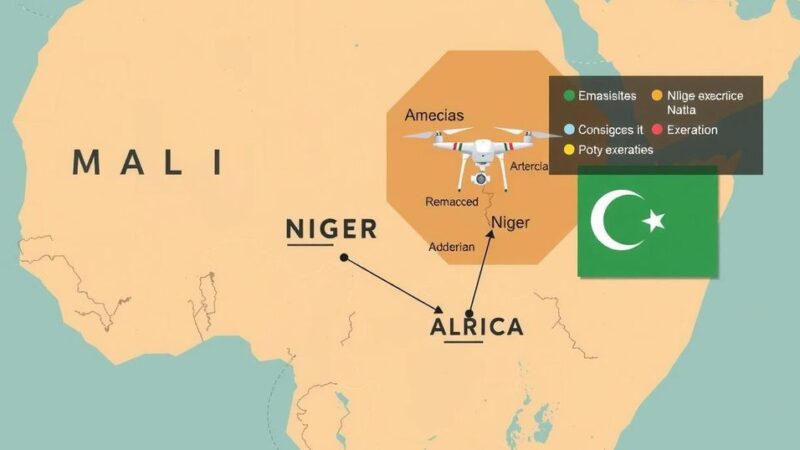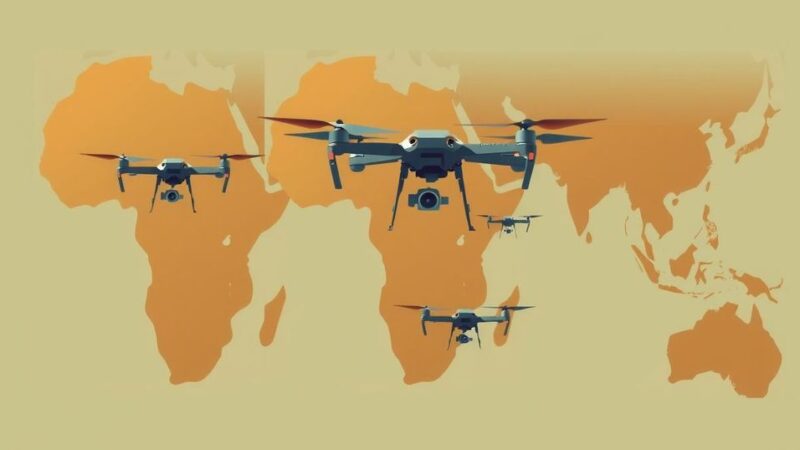The collaboration between India and the United States is positioned to advance the global landscape of Artificial Intelligence by combining the US’s technological investments with India’s skilled workforce. Initiatives like the Bengaluru-San Francisco corridor and the US-India Tech Conclave reflect a commitment to mutual growth and ethical AI governance. As both nations strive to build a robust semiconductor alliance, their approach to AI can set critical standards globally, fostering innovation that benefits society at large.
Artificial Intelligence (AI) is rapidly reshaping global landscapes, and the partnership between India and the United States (US) stands out as particularly promising. This collaboration leverages the technological strengths of the US with India’s expansive pool of skilled IT professionals and a dynamic startup culture. Such synergies can catalyze significant advancements in AI, fostering mutual benefits not just within these nations but on a global scale.
Historically, the US and India have played pivotal roles in the global technology sector, yet the integration of AI will fortify this relationship further. The US invests heavily in AI research and advanced applications, while India’s workforce provides cost-effective and highly skilled talent. The launch of the Bengaluru-San Francisco sister-city corridor illustrates the potential for enhanced collaboration in areas like AI and semiconductors, underlining both countries’ commitment to forming a robust AI ecosystem.
The recent India-US Tech Conclave highlighted this concerted effort, where leaders from government, industry, and academia explored AI’s applications across various sectors. This gathering initiated crucial discussions on strategic partnerships that drive technological advancement, regulatory alignment, and innovation investment, setting a strong foundation for addressing future technological challenges. Additionally, the Comprehensive Global and Strategic Partnership underscored AI governance as a critical area of cooperation, emphasizing the importance of shared principles for responsible AI development.
As AI technology expands, concerns regarding privacy and data security emerge. However, these issues can be systematically addressed by harnessing the combined expertise of the US and India to design multilateral governance frameworks. Such frameworks would not only facilitate responsible AI usage but also serve as models for ethical AI adoption worldwide. Collaboration in international organizations, including the G20, will provide further opportunities for establishing normative guidelines.
The partnership’s continuation hinges on addressing the semiconductor scarcity, an essential component in AI systems. India’s aspirations to become a semiconductor powerhouse align perfectly with the US’ CHIPS Act, creating a formidable alliance capable of bolstering the semiconductor supply chain while enhancing AI capabilities. By consolidating R&D initiatives and ensuring supply chain resilience, both nations can mitigate potential geopolitical disruptions and accelerate technological advancements.
Further, the establishment of initiatives like the US-India AI Dialogue is crucial for aligning regulations and promoting a cooperative regulatory environment. This dialogue facilitates the exploration of innovative AI applications while simultaneously managing risks associated with emerging technologies. By fostering these initiatives, both nations demonstrate a commitment to ethical AI development, ensuring the technology benefits society at large.
In conclusion, the partnership between India and the United States in the AI domain is positioned to unlock unprecedented opportunities that promote innovation and economic growth. The shared commitment to democratic values, combined with mutually beneficial collaborations, will not only set higher standards for AI development but also establish a framework that other nations may emulate. Effective leadership from both countries is essential to enable AI to serve as a transformative force for global progress and prosperity.
The evolving landscape of Artificial Intelligence (AI) highlights its potential to enhance global technological frameworks, particularly through the collaboration of key nations. The partnership between the United States and India is significant due to their complementary strengths in technology and innovation. The US has established itself as a leader in AI investment and advanced research, while India has a rapidly growing base of skilled IT professionals and a thriving startup ecosystem focused on AI applications. This partnership also coincides with urgent needs for strategic cooperation in areas such as semiconductors and ethical AI governance.
The United States and India are presented with a unique opportunity to collaboratively drive the AI revolution. Their combined strengths in technology and workforce can foster significant advancements that are both innovative and inclusive. There is a clear imperative for both nations to maintain strong leadership roles in AI development, ensuring that the technology serves as a positive catalyst for human advancement and global economic growth. By addressing challenges and promoting ethical standards, the US-India partnership can establish a benchmark for responsible AI usage worldwide.
Original Source: www.business-standard.com






